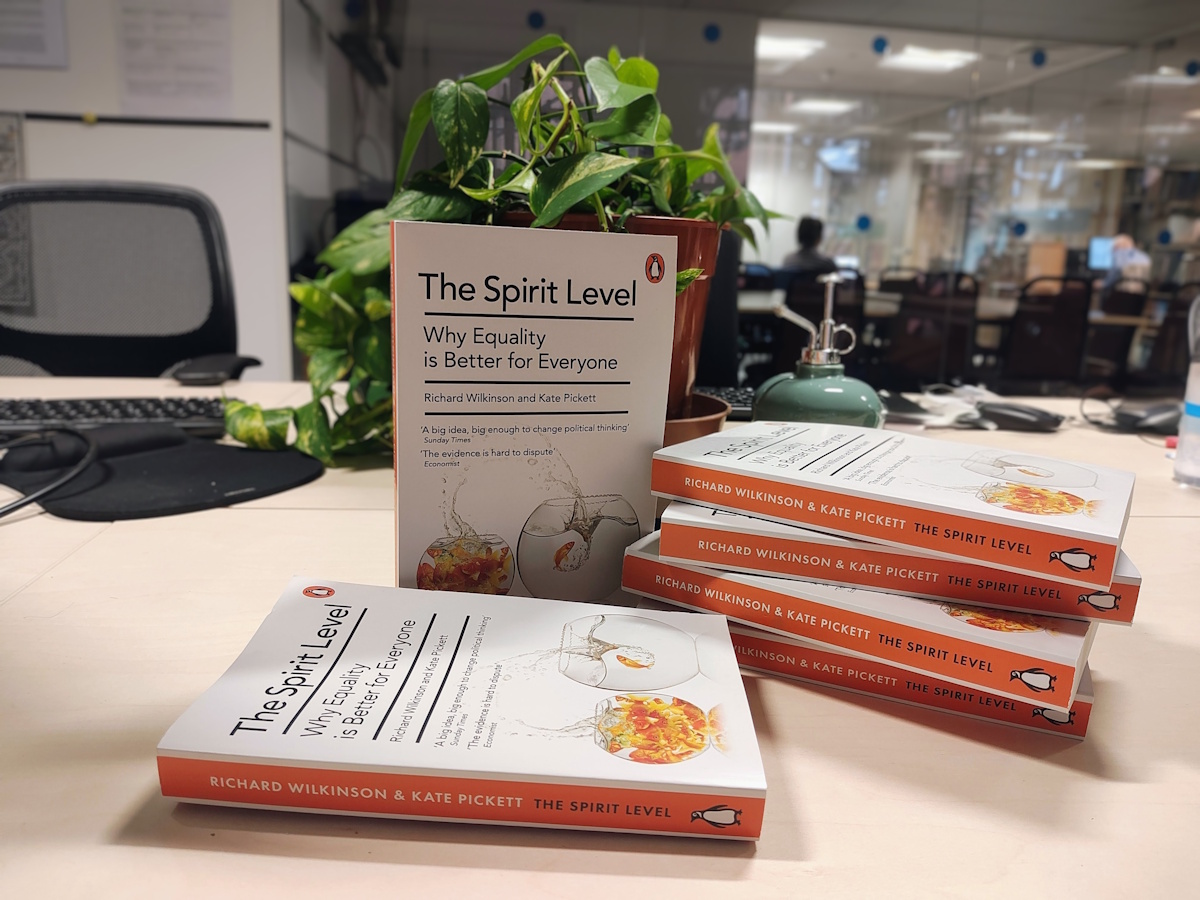Richard and Kate: “It was inevitable that these attacks would appear sooner or later. But it is important that people are aware of how ill-founded and easily rebuffed they are. That three sustained attacks from those opposed to greater equality can be dealt with in relative ease should increase our confidence in the case for a more equal society.”
Kate Pickett & Richard Wilkinson, July 2010
Introduction
The Spirit Level shows that problems more common among the least well off are worse in societies with bigger income differences. This is shown first among a single set of rich countries then, to double check, among the 50 states of the USA. Taking the data from the most reputable sources (WHO, UN, OECD, World Bank, US Federal Government etc) and never picking and choosing data points, a consistent pattern was found across almost 30 relationships. Against this, critics make piecemeal complaints, against the inclusion of this or that country here, those states there – suggesting different ways of trying to make the relationship disappear for each analysis, or, when ad hoc excuses fail, unwillingly accept analyses. However, even when all their exclusions were allowed, whether valid or not, the index combining health and social problems remains strongly related to inequality.
But the evidence does not depend just – or even primarily – on The Spirit Level. The tendency for homicide to be more common in more unequal societies has been demonstrated by others 40 times in settings where complaints about data points are irrelevant. That health is worse in more unequal societies has been shown over a hundred times. So, when faced with research showing the same pattern among the regions of Russia, the provinces of China, the counties of Chile, or rich and poor countries together, it is irrelevant to suggest – as they do with The Spirit Level, that the Scandinavian countries, or the USA, or the southern states of the USA, should be excluded. Critics would have to dream up a completely new set of excuses for excluding Russian regions, Chinese provinces, Chilean counties or developing countries.
Download the full responses to all three publications in one document.
(this contains all the information in the three individual documents linked below)
Read the authors’ individual response to The Spirit Level Delusion: Fact-checking the Left’s New Theory of Everything written and published by Christopher Snowdon
Read the authors’ individual response to The Spirit Illusion: a Critical Analysis of How The Spirit Level Compares Countries written by Nima Sanandaji, Arvid Malm & Tino Sanandaji from the Swedish Taxpayers’ Association and published in English by the Taxpayers’ Alliance
Read the authors’ individual response to Beware False Prophets: Equality, the Good Society and The Spirit Level written by Peter Saunders and published by Policy Exchange
Authors’ Note
Almost all of the research presented and synthesised in The Spirit Level had previously been peer-reviewed, and is fully referenced therein. In order to distinguish between well founded criticism and unsubstantiated claims made for political purposes, all future debate should take place in peer-reviewed publications.
Hugh Noble Addresses Statistical Criticism
Read Hugh Noble’s beautifully clear explanation of what is wrong with Saunders’ criticisms: The Spirit Level Revisited.
The Authors Respond to Karen Rowlingson’s Report for the Joseph Rowntree Foundation
Kate Pickett and Richard Wilkinson are glad that an independent report from the Joseph Rowntree Foundation has reviewed critical responses to their work and found it to be robust.
However, although they very much welcome the general conclusions of this report which gives their work a clean bill of health, it nevertheless contains a number of errors which will lead the reader to underestimate the power of income inequality to affect societies.
Read their full response below, which deals with the most important of these mistakes.
Further Reading/Listening
- Beware False Rebuttals – 8 July 2010 – The Equality Trust press release
- Peter Saunders’ Sleight of Hand – 9 July 2010 – Comment is Free
- In Defense of The Spirit Level – 21 July 2010 – Letter to the Editor, Wall Street Journal
- The Spirit Level: Spooking the Right – 26 July 2010 – Guardian editorial
- Claim & Counter-claim Continue over The Spirit Level – 28 July 2010 – Guardian letters
- The Book That Has the Tories Running Scared – 8 August 2010 – Nick Cohen writes in the Observer
- In Defence of Equality – 10 August 2010 – Prospect magazine
- The Big Society Needs Greater Equality – 10 August 2010 – RSA Comment
- The Spirit Level: How ‘Ideas Wreckers’ Turned Book into Political Punchbag – 14 August – The Guardian
- Spirited Defence of a Level Playing Field – 16 August 2010 – Guardian Letters
- Scholars Reject Future Debate with Idealogues – 19 August 2010 – Times Higher Education
“We all know, in our hearts, that as long as there is deep poverty living systematically side by side with great riches, we all remain the poorer for it.”
David Cameron, Prime Minister – Hugo Young Lecture, 10th November 2009
